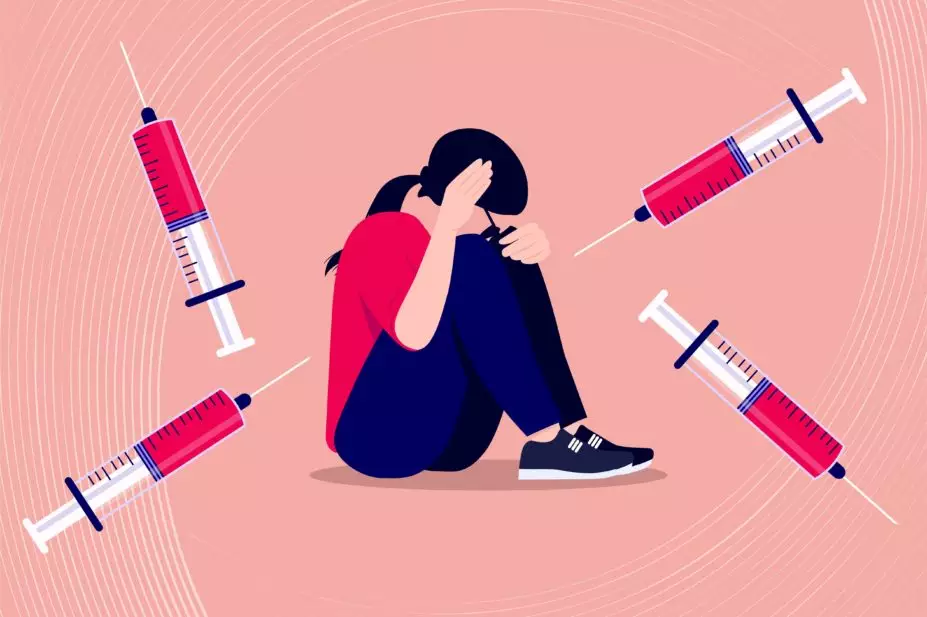@SarahNizaman
Despite Jenner becoming a global sensation with followers including the British, the Europeans, the North American, the Spanish and even Napoleon (as France and England were at war), the acceptance of vaccination was not without critique. The idea of injecting cattle disease in order to cure human beings was savage. Jenner’s earliest and biggest critics were the clergy, who believed smallpox was a disease sent by God to cull the children of the poor so society could not be overrun by the lower class, and that any ideas to stop the disease from its natural course were nothing less than blasphemy.
Disappointing, but not shocking was the vaccine resistance by fellow doctors and other health practitioners. These were mostly the people who were making an income by treating smallpox with non-medical means including leeches, pus and purgatives. Jenner’s work was an existential threat to their additional means of income. The media had its own reservations; several claims were raised including that the vaccine caused madness, cancer and even cow-like features in children. However, the truth of the vaccine’s side effects was far less brutal. The better known fact is that the global eradication of smallpox in the 1970s is ranked among the greatest human achievements and was solely possible due to vaccination.
The issue of vaccine hesitancy must be taken seriously.
Coming to 2021, an acute respiratory virus is rampaging across the world and affecting human lives in countless ways. However, the silver lining in the current pandemic is the miracle of the availability of vaccines a year into the pandemic. However, in addition to production, supply, logistical, storage and availability issues (which will be sorted sooner or later in the country and in the world), another challenge for the public health authorities is ‘vaccine hesitancy’ or ‘anti-vaxxers’.
Anti-vaxxers are not a new phenomenon. History is full of instances of people expressing reservations about something unknown being introduced into the human body. This time there is misinformation that Covid vaccines would inject microchips, altering the DNA and causing infertility. However, such reservations are a threat that can cost many lives.
A recent Gallup Pakistan survey shows that 64 per cent of Pakistanis are of the opinion that the threat of the coronavirus is exaggerated. The good news is that the willingness to get vaccinated has improved significantly — 65pc in March 2021 as compared to 38pc in December. Nevertheless, it is important to note that with no vaccination for children and anti-vaxxers, and given the casual behaviour of our youth and frequent mutations of the virus, the number of people not vaccinated, who can be potential carriers and spreaders, may not allow the country to achieve herd immunity. As long as Covid vaccinations are not made universal and frequent (because of mutation), the spread of the virus will always pose a danger.
The public health authorities must take the issue of vaccine refusal seriously. For starters, the authorities should make spreading misinformation on social media and messaging apps a punishable crime. The PTA must build a platform similar to the one it created to stop the circulation of blasphemous content that includes awareness messages and a reporting forum.
Secondly, the public health authorities should identify vaccine-hesitant groups that should be made the target of effective media campaigns; they should also reach the hesitant communities and their peers directly, which has been an effective technique in the past.
Thirdly, a collaboration with community leaders, including mosque imams, could be a really effective way to turn vaccine distrust around. To aid the process, the authorities can also decide on small monetary/non-monetary benefits for getting vaccinated.
Last but not least, the authorities must consider a ‘Covid Vaccine Act’ which should make the vaccine mandatory for all. This would come with the usual concerns of an attack on individual freedom but the words of John Steward Mill can be instructive in this case: “The only purpose for which power can be rightfully exercised over any member of a civilised community, against his will, is to prevent harm to others.”
https://www.dawn.com/news/1623872/vaccine-hesitancy


No comments:
Post a Comment